#Richard Stahl
Text
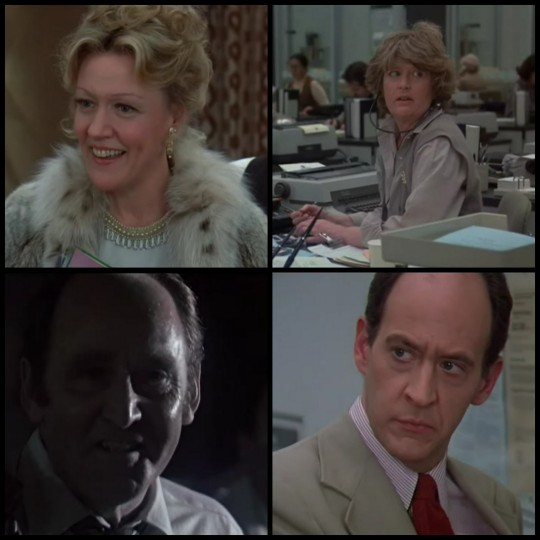
The 9 to 5/Golden Girls crossover!
#9 to 5#nine to five#Missy Hart#Marian Mercer#Cousin Magda#Peggy Pope#Margaret Foster#Gladys Barton#Character Actor#Richard Stahl#Meade#Golden Girls#The Golden Girls#Earl Boen#Perkins#Father Salerno
17 notes
·
View notes
Text


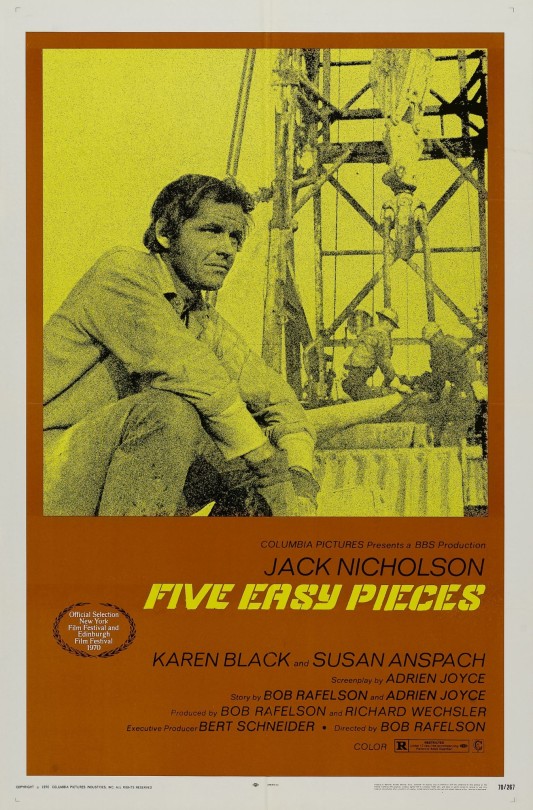
W A T C H E D
"Rejecting his cultured upper-class background as a classical pianist, Robert Dupea (Jack Nicholson) opts for a blue-collar existence, working in a California oil field and spending time with his waitress girlfriend, Rayette (Karen Black). But when Robert discovers that his father is gravely ill, he wants to reunite with his estranged family in the state of Washington. He and Rayette take a road trip that brings the two paths of his life to an uncomfortable intersection."
A very good movie. I love how he tells off his family's friend who's being a classist bitch. In chose it on a whim and because it's Jack Nicholson. It was very touching to my heart in a strange way.
#FIVE EASY PIECES (1970)#Bob Rafelson#JACK NICHOLSON#Karen Black#Susan Anspach#Lois Smith#Ralph Waite#Billy Green Bush#Irene Dailey#Toni Basil#Helena Kallianiotes#William Challee#John Ryan#Fannie Flagg#Sally Struthers#Lorna Thayer#Richard Stahl#drama#WATCHING
1 note
·
View note
Text
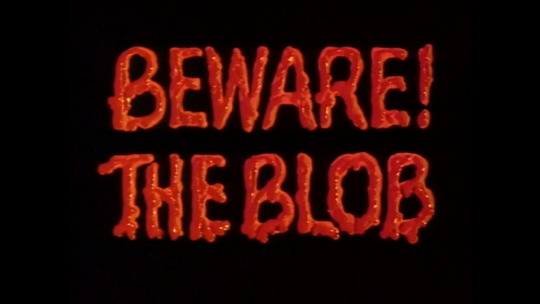
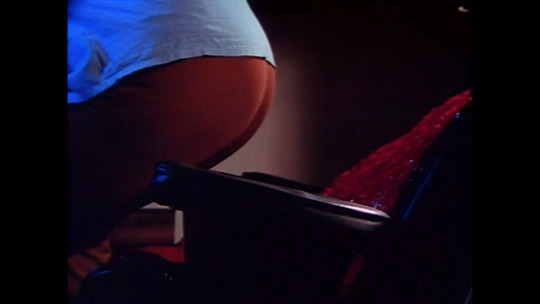


youtube
Beware! The Blob (1972)
My rating: 2/10
Some of the most obnoxious characters ever conceived by human minds say words at each other, then get eaten by the Blob. This is repeated ad nauseam, and beyond. The worst part? I'm pretty sure they thought this was funny.
#Beware! The Blob#Larry Hagman#Jack Woods#Anthony Harris#Richard Clair#Robert Walker Jr.#Gwynne Gilford#Richard Stahl#Youtube
1 note
·
View note
Photo

Block for Charly Chaplin, Stahl, 1978, Berlin - richard serra
14 notes
·
View notes
Text
DR. CALIGARI:
A mad scientist
Brings out patient’s perversion
Campy horror art
youtube
#dr. caligari#random richards#poem#haiku#poetry#haiku poem#poets on tumblr#haiku poetry#haiku form#madeleine reynal#Fox Harris#Laura Albert#John Durbin#David Parry#Stephen Sayadian#Jerry Stahl#Maggie Song#jennifer miro#Stephen Quadros#cult movies#Youtube
2 notes
·
View notes
Text
Shallow Grave (1987)
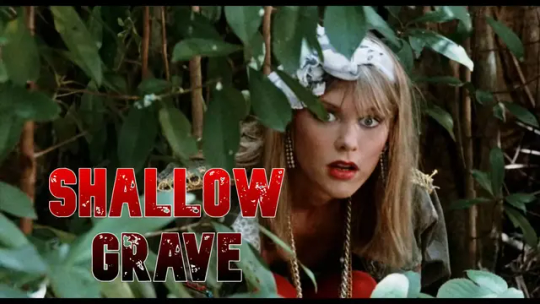
View On WordPress
#1987#Carol Cadby#Donna Baltron#George Edward Fernandez#Lisa Stahl#Richard Styles#Shallow Grave#Tom Law#Tony March#Vincent Tumeo
0 notes
Text
Theme 3 : Analysis of Leadership
Theme 3 : Analysis of Leadership
The Mastery in Marketing and Advertising : Analysis of Leadership
What role leadership plays in the world of marketing?
It is all about being the master of visibility and outreach(O’Keeffe et al., 2015). Leadership paints the visual on how employees view the company and in which projects the influence of the brand to customers(O’Keeffe et al., 2015). From planning to executing a great…

View On WordPress
#Ads#Analysis of leadership#coca-cola#competitive advantage#content marketing#Digital Marketing#duchess of digital marketing#ethics#Jack Stahl#Leadership#leadership vs management#Marketing#marketing leadership#Mastery#McDonald#Media#media agency#online ads#richard branson#situational leadership#virgin cola#yin and yang
0 notes
Photo

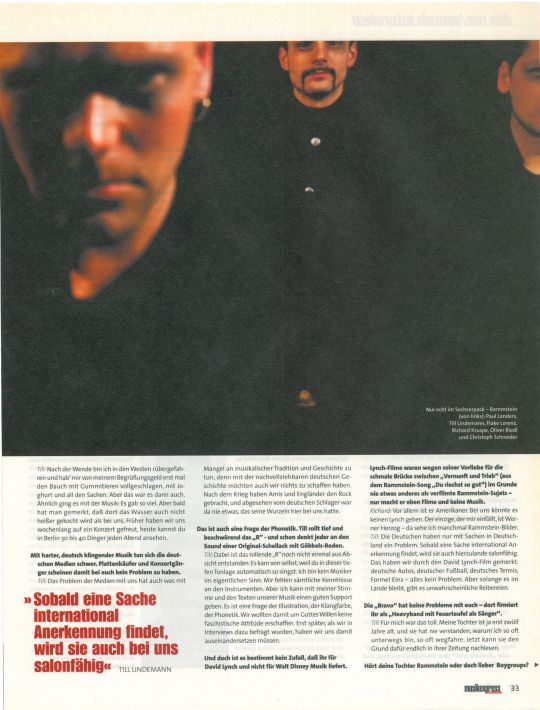


Musik Express - September 1997, Interview with Till and Richard
Thanks to Ramjohn for the scans!
Opinions are divided on this band - demonized by some, loved by many as passionately as the fire on their stage. An interview by Peter von Stahl.
In the press, adjectives such as 'controversial', 'fascistoid' or 'glorifying violence' can still be read in Rammstein stories. Is life good with this image?
Richard: We only depict violence in our shows and address it in our lyrics. We strictly reject using or propagating violence. Every kind of music serves a cliché in the mind of a journalist. Rammstein has this heaviness, these metal guitars. The right clichés immediately pop up in your head: long hair, short pants, American metal. And then comes a band that doesn't serve all of that anymore, that has a completely different, very own appearance - and then they need a new drawer. And it probably says 'controversial' on it.
Every artist says that in an interview — no one wants to fit into a drawer. Your music isn't that revolutionary.
Richard: But bands like Krupps or Front 242 are different. Rammstein is just unique. There is no band that sounds like Rammstein.
Till: I just have to listen to our neighboring rehearsal rooms: on the left it sounds like Pearl Jam, on the right like something else that you've known for a long time. You try to make it easy for yourself.
Richard: Maybe they just never got the hang of it because they only ever wanted to serve one market. Even more extreme in the West than here in the East. There was no market to serve.
Till: After the reunification, I drove over to the west and used my mountain greeting money to stuff my stomach with rubber animals, yoghurt and all that stuff. But that's about it. It was the same with music: there was so much. But soon it was noticed that the water is not boiled any hotter there than it is here. We used to look forward to a concert for weeks, today you can see 30 to 40 things in Berlin every evening.
The German media have a hard time with hard, German-sounding music. Record buyers and concert goers don't seem to have a problem with you.
Till: The media's problem with us also has something to do with a lack of musical tradition and history, because we don't want anything to do with understandable German history either. After the war, Americans and the English brought rock, and apart from German hits, there was never anything that had its roots here.
This is also a question of phonetics. Till rolls the 'R' deeply and evocatively - and everyone thinks of the sound of an original shellac with Göbbels speeches.
Till: The rolling 'R' didn't even come about on purpose. It came naturally because in that low pitch you sing like that automatically. I'm not actually a musician. I have absolutely no knowledge of the instruments. But I can give good support to our music with my voice and the lyrics. It's a matter of illustration, tone color, phonetics. We didn't want to create a fascist attitude, for God's sake. Only later, when we were asked about it in interviews, did we have to deal with it.
And yet it is certainly no coincidence that you provide music for David Lynch and not for Walt Disney. Because of his preference for the narrow bridge between 'reason and instinct' (from the Rammstein song 'Du riechst so gut'), Lynch films were basically never anything other than filmed Rammstein subjects - only he just makes films and no music.
Richard: First of all, he's an American. We couldn't have a Lynch. The only one I can think of is Werner Herzog — I sometimes see Rammstein pictures there.
Till: The Germans only have a problem with things in Germany. As soon as a thing finds international recognition, it also becomes socially acceptable here in Germany. We noticed that through the David Lynch film: German cars, German soccer, German tennis, Formula One — no problem at all. But as long as it stays in the country, there will be unlikely friction.
'Bravo' has no problems with you - there you operate as a 'heavy band with Feuerteufel as a singer'.
Till: That was great for me. My daughter is only twelve years old and she has never understood why I travel so often, drive away so often. Now she can finally read the reason why in her newspaper.
Does your daughter listen to Rammstein or rather boy bands?
Till: No, she listen to something else. She doesn't like boy bands that much, she prefers electronic stuff with a melody.
As a single father, how do you balance work and family?
Till: It wasn't that bad before, I played drums in a punk band and we practically had our rehearsal room in the house where I lived. I had them alone for seven years, but now I share parenthood with my daughter's mother again, because I'm on the road with the band half the year.
How does your daughter actually react to the hard Rammstein texts?
Till: She always giggles. She doesn't understand the extreme things yet.
Children watch movies and TV news on these topics without understanding them. The younger fans will feel the same about your lyrics.
Till: We never intended to make music for 13 or 14 year olds. This has only recently developed through 'Bravo', 'Viva' and so on. But when I see what's on the afternoon TV program, in the news, what's in the newspaper - they have to deal with that too. With their idols Tic Tac Toe they have to deal with prostitution, with drugs. Or with tampon ads on TV, where they see small, hidden gestures at dinner - how are we supposed to leave children disturbed?
After all, the menstrual fluid is kept in a friendly light blue in the advertising. With you, blood is still blood—deep red.
Till: First and foremost we make our music for ourselves. And the images it projects in people are very different. For some, the lyrics are totally incomprehensible, but they might like the music and just let it flow. On the other hand, a girl recently told me that she walked in a performance as the hooker that appears in our song 'Seemann' — the hooker who stands by the lantern.
Which of course is never mentioned in the text...
Till: Shall I explain that it's not about a whore, but about this and that? It's her picture, her story about the song.
When you sing about SM phenomena in songs like 'Bück dich' or 'Betraf mich' on the new record, the images are more clearly defined.
Richard: Just yesterday we were with some friends and discussed Rammstein. There was also a young evangelical pastor who was terribly upset about Rammstein and especially about the text of 'Bück dich'. He complained that more and more people in his youth community were listening to Rammstein and were therefore taking the wrong path. The evening grew longer and longer, they drank more and more - and at some point it turned out that the pastor himself was the only one in the group who really lived this 'bend over' sex and that he had a different woman almost every night drives in this way.
The church, especially the Catholic one, has enough internal institutions that deal intensively with Rammstein topics: incest, sin and punishment, the devil. In contrast, the anti-authoritarian educational models of the post-1968ers, the evangelical discussion groups, seem to have failed, also because of the denial of the existence of evil. How do you feel about raising your own children?
Till: One has absolutely nothing to do with the other. I try to separate Rammstein and my private life as much as possible. That's exactly how it is with the fire effects on our stage. I'm not a pyromaniac. I never light a cigarette privately. Just as Richard procures state-of-the-art musical equipment, it's my job to take care of the pyro effects for the show. We're a band that just does its job. Anyone who knows us privately cannot believe that we are so nice. We are quite normal, we do our job like fishermen who leave their hut in the morning, kiss their children, go out to sea, fetch the fish with the nets from the depths and return to the hut in the evening. Their children go out with them from time to time, and our children sometimes go to concerts too. But when they watch their father kill fish and gut them, they quickly realize that this is father's job. If they grow up with that, they're fine with that because they keep the two things separate.
In any case better than hiding from the child that the schnitzel on the plate was once a live pig that was slaughtered.
Richard: Just like the child of a sex performer or actress might at some point see their mother in a sex scene on TV and wonder where dad is. You will learn how to deal with that.
If every artist would live their madness of whatever kind in private, then there would almost certainly only be sick people in the charts. But: Do your lyrics at least help in your private fight against your very own, hidden demons?
Till: That happens. For me, solitude always gives me a creative boost — you have another glass of wine and you feel even more shitty. Art cannot do without suffering. Art is also there to compensate for suffering.
As one of the most successful metal acts in Germany, you will probably soon suffer too little to be able to continue to nurture your art.
Richard: Above all, we have no time to suffer. Except in the lonely hours after the concerts.
Till: It makes you feel like shit. You play a concert in Berlin in front of 16,000 people, then you cycle home from the rehearsal room because the after-show parties might not be the real thing either, you sit alone in your booth and have to come down again. It's like a hangover.
At this moment, your single father support group seems to be failing you.
Richard: If you sit on each other constantly for two years, you know the whole whining by heart.
Hartmut Engler from Pur says he still wants to put the whole feeling into his lyrics at the 67th gig.
Till: Sure — he always cries. Nonsense! Everybody is saying it! Maybe at the beginning, at the first two concerts. At some point it will become operational blindness. When 'Seemann' was still very fresh, I often felt a shiver. Later on, you tend to make sure that the intonation is right.
In many of your songs you can hear borrowings from the soundtracks of old spaghetti westerns. Who is actually the inveterate Ennio Morricone fan with you?
Richard: That's me.
Till: He's a fan of old cowboy music and movies.
In this sense, Rammstein is like Karl May - you don't have to murder, desecrate and humiliate yourself to be able to write lyrics about mauling, child abuse and incest.
Till: But that's exactly the point: you're talking about 'tearing, child abuse and incest'. I wish people would approach such topics much more sensitively. My daughter is at an age when something like this could really happen to her — maybe the day after tomorrow. And so I take it upon myself to imagine what that would be like. If it were about my daughter, I would probably want to cut off an egg from a perpetrator like that, shoot him or something. On the other hand, I can also sit in a dark corner and think about what drives him to do it. And about what drives me to be able to understand such a drive. Those are the two sides of this thing: On the one hand, reason, morality, my completely normal life — for me there's no question about that. But then I sit down, close my eyes and think about how, for example, the day before yesterday I felt such a longing for this grown woman — why shouldn't someone have such a longing too, who can't even help it, because he may have been abused himself in the past. And maybe he can't appreciate what it means to transfer that desire to a child. Where do you put the value, how do you want to judge?
It's shocking how many people were abused in their childhood. On the other hand, you are accused of the fact that your texts deal less with illness and morality than with the problem of overcoming the conflict between reason and instinct.
Till: No, no. Sick is sick, there is no discussion. And if it wasn't sick by normal standards, we wouldn't need mental hospitals anymore. But more important is the question of why and how it happens. Otherwise, this is only of interest to the lawyers who dig into their clients' childhood so that they can plead insanity. I've lived in the country for quite a long time and saw a horse molester almost lynched on the village street - I really felt sorry for him.
The line between everyday life and madness is known to be fluid. After all, the worst things happen every day in most cities behind every fifth window.
Till: If that's enough. Probably behind every third. And that's why I find it sad that lyrics about things that actually happen every day can kick up so much dust. For example, we had a listening session in Malta with Petra Husemann and Tim Renner from our record company. And when he heard the line 'Couple with your own flesh and blood' from the song 'Tier', Renner immediately dismissed it - a case for the index, which in Germany includes everything about sex with animals, incest, sibling love and so on acts. I don't understand that — you can even read about the relevant extras in the 'Bild' newspaper. And yet some act as if none of this exists.
And then? What have you done? Did you soften the text at the end?
Till: Nope. We aim for it.
I was never really interested in Rammstein myself until my wife put your record on again and again. On the other hand, feminists accuse you of the worst sexism.
Richard: We keep hearing that it was women who brought their men to Rammstein. Petra Husemann, the wife of Timm Renner (Rammstein's record boss/ed.), the girlfriend of our manager Emu, many wives and girlfriends of journalists. Men seem to have more of a problem with us than women.
Maybe that's because you're a lot better looking and have a lot more muscles than most media men.
Richard: It has more to do with head and gut. Rammstein frightens many men because they recognize qualities or character traits in our texts that they carry within themselves, but which they have suppressed.
So you mean you hold something like a mirror in front of the men's faces. A mirror in which they can suddenly and suddenly see the animal in them?
Richard: The animal, sure. A lot of things. A kind of machoness when we sing about the 'Wilder im Revier'.
Till: For us, the sexism that we are accused of is more about protecting women.
I'm really sorry, but now I can't follow. I do not understand that.
Till: For us, it's about understanding the woman's feelings and then showing them as extreme as they actually are. Yesterday a journalist asked us why we don't write love songs. Love, this is just this one brief moment. But after that, that's when the work begins. The constant misery: finding each other, falling in love, sticking it out for a while, then sticking it out, and then it all starts all over again.
Do you think you know more about women than men?
Till: No, not at all.
Perhaps for this reason you cannot imagine that husband and wife can be happy together in the long term.
Till: I don't know of any intact relationships. One or two maybe, but the circumstances aren't normal there — they don't see each other very often. I'm talking about this thing: getting out of the house in the morning and putting the kids to bed at night. Where are the theater visits, who still brings flowers? Being in love, bringing flowers to your loved ones — eventually it always ends.
That's why the resolute 'no' to the female marriage wish on your new single 'Du hast'?
Till: 'until death do you part...' — that's just as unnatural as a tattoo on your arm. It won't go out for the rest of my life. At some point, as a pensioner, I’ll sit with my grandson on my lap and he’ll ask what kind of silly thing I have on my upper arm.
However, Rammstein does not seem to want to live entirely without women. After all, you've now recorded a hymn to the primary female sex organ. What do you say in the rehearsal room when you want to play this song?
Till: Sometimes we say, 'Now let's play cunt!' Isn't that what you wanted to hear?
The song title 'Kiss me, Fellfrosch' sounds a lot more tender.
Till: Fellfrosch — the word alone is a homage to this part of the body. That's a nice, childish way of looking at things: fur stands for small, furry little animals. Hamsters, guinea pigs and such. And frog or snail takes care of the second part. Fascination and disgust, both play a role.
Perhaps the disgust at the bitter aftertaste is really just a problem of overly careless personal hygiene?
Richard: Tastes change too. Much of what seemed too bitter to us in childhood tastes good to us today. On the other hand, we usually find the sweets from the past too sweet. Every fur frog tastes different. Pure question of taste. There is no judgment in the text. We're not saying it stinks.
Feminists will not see the 'fur frog' in such a differentiated way. This will cause trouble.
Till: Hopefully! That's the same topic as before: It's about something that is completely self-evident and that everyone knows. That's the most normal thing in the world. Exaggerated feminism, on the other hand, is an indictment. And when they get upset about it, that's ultimately just proof to me that they don't have a sense of humor. Just the other day someone told me a joke about a forty-centimetre cock. It was a woman.
#Rammstein#Till Lindemann#Richard Kruspe#1997#interview#translation#*scans#*#great in depth interview with Till mostly
106 notes
·
View notes
Text
OPINION
Matty Healy exposed the dark side of the Taylor Swift parasocial fantasy
The responses to Taylor Swift's latest breakup highlight a toxic cultural phenomenon.

Karma may be your boyfriend, but Taylor Swift is not your best friend.Chelsea Stahl / MSNBC; Getty Images
June 6, 2023, 5:29 PM EDT
By Patricia Grisafi
It’s a bummer when your best friend starts dating an apparent dirtbag. God, you think, what does she see in him? He looks like he smells of stale coffee and cigarettes. He looks like a hipster stork. You’ve heard him brag about how he watches humiliation porn. And don’t forget the racism and antisemitism.
Except Taylor Swift is not your best friend.
I don’t know what prompted the breakup, but I doubt it was a tearful Swiftie on TikTok.
When news broke this week that Swift and The 1975 lead singer Matty Healy had ended their brief relationship, social media celebrated in a way that was notable — and a little deranged. (And immediately started speculating about her next fling.) Just hop on Twitter and read the comments about how Swift had really heard her fans and tossed that loser in the trash. I don’t know what prompted the breakup, but I doubt it was a tearful Swiftie on TikTok. Still, imagine feeling like you have that kind of influence over a person you’ve never interacted with. Or that kind of personal investment.
Swift is — in some ways — an unusually private celebrity. It feels like her every move is carefully choreographed. We hardly ever see her messy, incoherent, or intentionally challenging. But fans feel like they know Swift because she writes prolifically about romantic relationships. It’s hardly novel, a musician writing about love and loss. Still, fans pore over these songs. They find Easter eggs in the lyrics, do complex analysis aligning certain ex-boyfriends with specific details. And because language is subjective and Swift is arguably both elusive and slyly encouraging of these readings, the meanings are ever-shifting. Depending on who you ask, she is everything from an Aryan pinup girl to a queer icon. In short, she is the perfect parasocial fantasy subject.
The term “parasocial interaction” has been around since sociologists Donald Horton and Richard Wohl theorized on the phenomenon in the 1950s. A parasocial interaction refers to a relationship in which a consumer comes to believe that media personalities are their intimate friends and that an emotional connection is shared. The phrase has become more popular recently with the rise of pop culture super fans, or stans. These fans can become incredibly invested in their favorite celebrity’s real-life relationships, and devastated if those relationships implode.
See, for example, when comedian John Mulaney separated from his wife Anna Marie Tendler in May of 2020 and began dating actor Olivia Munn. While celebrity relationships have always been fodder for gossip and people are naturally curious about their favorite stars (this writer included), public response regarding the Mulaney situation was noteworthy. Critics suggested that this was because Mulaney’s public persona made it seem like he was your buddy, your pal, a friend you could relate to. And he made his personal life part of his public persona by integrating details about his wife and French bulldog Petunia into his comedy routine. When he violated the parasocial social contract by not living up to that fantasy, things fell apart. It’s similar with Swift — particularly, this situation with Healy.
Swift stepping out with Healy disrupted fan notions of her and the values they believe she holds dear. She’s dating a guy who makes racist remarks? Who unrepentantly laughs about violently objectifying women? Is this who you are, Taylor? And if this is who you are, who am I?
Things got so intense that a group of Swifties circulated an open letter telling other fans to #SpeakUpNow.
Things got so intense that a group of Swifties circulated an open letter telling other fans to #SpeakUpNow and condemn the relationship: “He has been involved in acts and controversies that deeply trouble us,” the letter says. “We urge you to reflect on the impact of your own and your associates’ behavior and engage in genuine self-reflection.”
Rapper Ice Spice, who Healy called a “chubby Chinese lady” on a podcast, was brought in to share the stage with Swift in East Rutherford, New Jersey. Some speculated this act was a professional olive branch, others an empty, performative gesture to both Ice Spice and fans who were disturbed by Healy’s original remarks (he has since offered both an apology and a non-apology for the comments).
Poets talk a lot about how the speaker of the poem is not the writer of the poem. You’ve got to put distance between them. That’s healthy for artists and fans. You don’t know anything about Taylor Swift except what she carefully curates and puts out into the world. Her songs may speak to you, but she directly is not. Proclamation of ownership over a stranger and her love life, the fantasy that our whispers reach Swift’s ears and she heeds our pleas, is problematic.
Parasocial relationships can show the beauty of human emotion, our capacity for empathy, and our ever-expanding desire to connect. On the darker side, they reveal our desire for control, our capacity for cruelty, and our instincts to possess. If the parasocial fantasy is punctured, you might have to make an ethical choice that forces you to confront the dissolution of that illusion — and, more importantly, yourself and what you’re willing to accept.
ts1989fanatic: in some ways the last month or so on SM has been far worse and much more divisive than this🐍🐍🐍🐍 in 2016. There are times when I don’t recognize our fandom anymore.
I honestly don’t know if it’s the rise of TikTok as a preeminent SM platform or just a general increase in SM usage but I do know it’s become far more toxic than it was just a few short years ago.
28 notes
·
View notes
Text
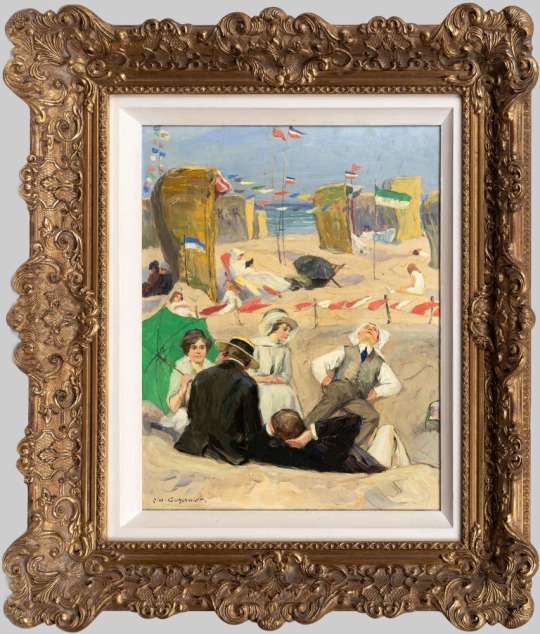
Richard Gutschmidt (Neuruppin 1861 - M��nchen 1926)
Elegant Party on the Beach
Oil on canvas
Stahl Auctions
5 notes
·
View notes
Text

Linda Darnell and George Sanders in Forever Amber (Otto Preminger, 1947)
Cast: Linda Darnell, Cornel Wilde, Richard Greene, George Sanders, Glenn Langan, Richard Haydn, Jessica Tandy, Anne Revere, John Russell, Jane Ball, Robert Coote, Leo G. Carroll, Margaret Wycherly. Screenplay: Philip Dunne, Ring Lardner Jr., Jerome Cady, based on a novel by Kathleen Winsor. Cinematography: Leon Shamroy. Art direction: Lyle R. Wheeler. Film editing: Louis R. Loeffler. Music: David Raksin.
Once a famous "dirty book," Kathleen Winsor's Forever Amber wouldn't raise eyebrows or blood pressures in the average book club of today, but it was one of Hollywood's hottest properties in the 1940s. The bidding war was won by 20th Century Fox, which followed the example of Gone With the Wind by announcing a search for the actress who would play the glamorously wicked Amber St. Clair. Though the part originally went to Peggy Cummins, producer Darryl F. Zanuck finally decided that she looked too young to play the mature Amber, and when she was sidelined by illness just as filming began, she was replaced by Linda Darnell. John Stahl, the original director, left the film at the same time, and Otto Preminger stepped in. He disliked the book and asked for a script rewrite, but Preminger also delighted in trying to get things past the censors, who were all over the project. The result is a middling costume drama with too much material from the book to fit comfortably in its two-hour run time. Amber is an ambitious lass raised in a Puritan household who, when Charles II is restored to the throne, latches on to a handsome Cavalier, Bruce Carlton (Cornel Wilde), and heads for London. When Carlton is commissioned as a privateer by the king (George Sanders) and sets sail, Amber, who is pregnant with Carlton's child, is left with a little money that gets swindled away from her and lands in Newgate, the debtors' prison. She gives birth, escapes from prison, makes a living by thievery, goes on stage, attracts the eye of the king, marries an elderly earl, nurses a returned Carlton through the plague, inherits the earl's fortune when he dies during the Great Fire, and becomes the king's mistress. All of this immoral behavior should mean, under the Production Code, that she gets punished accordingly, but somehow the movie manages to finesse that with only a little emotional stress at the end. Forever Amber got condemned by the Catholic church and banned in a few places, but it was evidently bowdlerized enough to survive and make money. The truth is, it's a little dull. It comes to life occasionally when Sanders is on screen being royally wicked, but Darnell, with a blonde dye job and wig, never gets a chance to do more than be cautiously wicked and suffer prettily. The Technicolor is also rather dark and muddy, although that may be the result of an aging print.
6 notes
·
View notes
Text
October Screams
October Screams is a new anthology featuring a brand-new short story by Brian Keene and Richard Chizmar called “Masks”. It also features stories from Jeremy Bates, Kealan Patrick Burke, Clay McLeod Chapman, Philip Fracassi, Todd Keisling, Gwendolyn Kiste, Red Lagoe, Ronald Malfi, Bridgett Nelson, Rebecca Rowland, Steve Rasnic Tem, TJ Cimfel, Cassandra Daucus, Ryan Van Ells, Patrick Flanagan, Brennan Fredricks, Larry Hinkle, Larry Hodges, Kevin Kangas, Evans Light, Gregory L. Norris, Frank Oreto, Robert Stahl, Cat Voleur and Jacqueline West. Available in paperback and hardcover here.
3 notes
·
View notes
Video
youtube
Hubert Selby Jr: It/ll Be Better Tomorrow
English language, Italian Subtitles) MP4 DVD rip
A Michael W. Dean / Kenneth Shiffrin Production. From MVD video. Narrated by Robert Downey Jr.
Hubert "Cubby" Selby, Jr. (July 23, 1928-April 26, 2004) was the author of Last Exit To Brooklyn, The Room, The Demon, Requiem for a Dream, The Willow Tree, Waiting Period, and a book of short stories, Song of the Silent Snow.
Featuring interviews with: Hubert Selby, Jr, Lou Reed, Ellen Burstyn, Jared Leto, Darren Aronofsky, Uli Edel, Alexis Arquette, Desmond Nakano, James Remar, Nicolas Winding Refn, Jerry Stahl, Richard Price, Amiri Baraka, Nick Tosches, Gilbert Sorrentino, Michael Lally, Kenneth Shiffrin, James Ragan, Michael Silverblatt, James R. Giles, John Calder, Arthur Boyars, Luke Davies, Jem Cohen, Susan Compo, Matt Polish, Carmine "Tony" DeFeo, Anthony Di Novi, Kaytie Lee, Susan Anton.
Website: http://cubbymovie.com/
8 notes
·
View notes
Text










Updated office building with multiple rooms offering:
• Sound proof walls 🔕
• Quiet cork flooring 🤫
• Kitchenette 🍴
• Three half baths 🚽
• Ample storage 📦,
• Private parking 🚗
• Detached rental home 🏠
Check it out 👉 https://rb.gy/021wh
Great possibilities at 301 S Richards Ave in Gillette, WY. Call Tonya Stahl at Team Properties Group for your showing 📲307.299.1396
#wyoming#wyomingrealestate#officebuilding#commercialrealestate#commercialbuilding#investmentproperty#rentalproperty#rentalpotential#businessopportunity#gillettewy#gilletterealestate#commercialrealestateingillettewy#realestate#realestateagent#realtor#realestatemarket#tonyastahl#teamproperties#tpg
2 notes
·
View notes
Text
Rules: tag 10 people you'd like to get to know better!
Fav color: Midnight blue and ivory
Currently reading: The seerah of Prophet Muhammed (sws) + the child in you from Stefanie Stahl
Last song: Ur_room by Wesley Joseph, it’s so good I’m literally hooked up with this song atm
Last series: Trying my best to catch up with One piece
Last movie: King Richard and I also rewatched the chinese movie Better Days recently (my comfort movie for now)
Spicy savory or sweet: I need both on daily base
Currently working on: Learning the language Darija (btw, if someone knows some good YouTube videos, books, or websites about it.. please let me know!! I‘d appreciate it a lot🤍)
Tagging the blogs which I totally admire (it‘s way more tbh, but imma keep it down to only 10). Feel free to do as you like 🫶🏻 shoutout to @brown3gold 🤍 thank you my dear, I enjoyed doing this
@ruhlare @rueyam @neaeach @cafelbj @2nve @arsxrtiss @blueepelikan @stjaernstoft @duygii @b-lessings
12 notes
·
View notes
Text
60 Years Ago Today: The Committee is Called To Order
April 10, 1963 marked the debut of the legendary San Francisco (and later, also L.A.) based improv comedy troupe The Committee. Formed by Second City alum Alan Myerson (b. 1940) and others, its members over the years included Howard Hesseman, Peter Bonerz (The Bob Newhart Show), Del Close, Gary Austin (founder of The Groundlings), Carl Gottlieb, Roger Bowen, Richard Stahl, Rob Reiner, Mel…

View On WordPress
2 notes
·
View notes